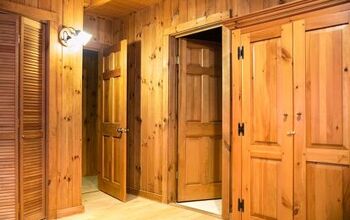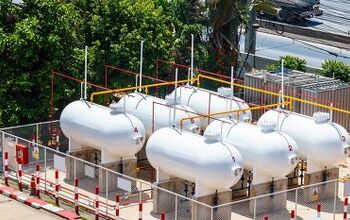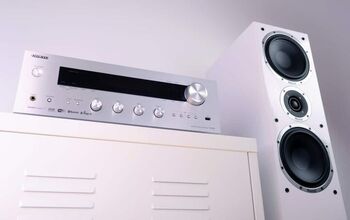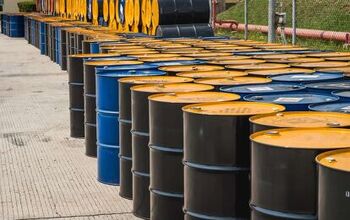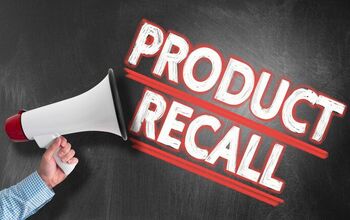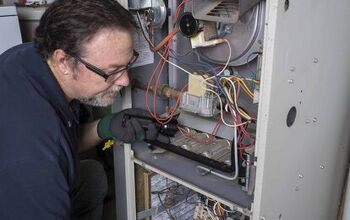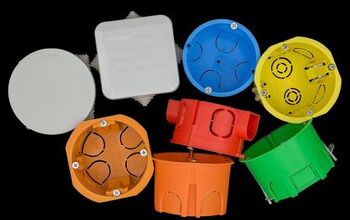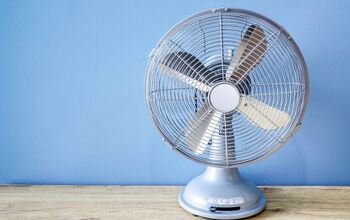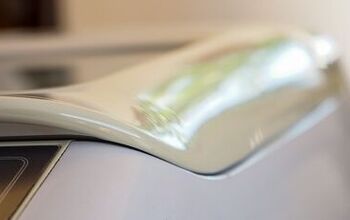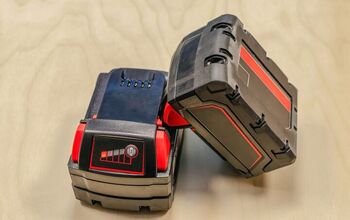2022 Water Leak Detection Cost

Leaks have the potential to cause major problems and both water damage and mold can negatively impact your home for many years – especially if you don’t locate a leak as soon as possible. Fortunately, early intervention and professional leak detection services can help mitigate possible damage to your home or property caused by water.
If you suspect that you have a leak in your home but you can’t locate it, you can hire a water leak detection service. This service involves a technician from a local restoration and repair firm coming out to your residence to locate any leaks that you think may be occurring. These professionals will use specialized equipment and testing to detect any potential threats to your home’s infrastructure caused by leaks. Once located, you can take the necessary steps to get the leak repaired.
The average water leak detection cost is $262, and roof leak detection costs an average of $1,750. Homeowners spend an average of $400 to detect foundation slab leaks, $1,500 to detect basement leaks, and ceiling leaks cost $1,250. It costs an average of $250 to detect simple leaks and water spots.
Continue reading for our comprehensive guide on water leak detection costs, so you can have a more well-rounded understanding of how to properly budget for this, oftentimes, necessary service.
Do You Need to Hire a Plumber?
Get free, zero-commitment quotes from pro contractors near you.

What is Water Leak Detection?
The nuisance of leaking taps places unwarranted burdens on homeowners. While a simple faucet leak may be pretty apparent and relatively straightforward, not all water looks are so obvious. Leaks located behind a wall or underneath your home’s foundation can be much more difficult for a homeowner to find. This is where professional water leak detection comes in.
With the assistance of a dependable plumbing company, those pesky hidden leaks can be a thing of the past. Leak detection is a necessary service for homeowners, and even business owners, that have mysterious water issues. It is performed to determine where a leak has occurred in your system, and may be done using one of two main methods: hydrostatic testing and smoke testing.
Cost Breakdown of Water Leak Detection
There are a number of factors that go into the cost of water leak detection, including:
- The location of the leak.
- The type of leak.
- Types of services needed.
- Equipment required to detect the leak.
- Local costs for materials and equipment delivery to and from the job site.
- Hourly charges.
- Costs to prepare job site for detection.
- Mobilization time.
For reasons you might expect, the more complicated and deep the leak is, the more technical equipment and expertise required. The aforementioned factors are only for detecting the leak, not fixing it. The costs outlined below do not factor in removing or repairing of existing systems, contractor overhead, taxes on materials and supplies, permit fees, and testing or removal of hazardous materials like lead or asbestos.
It’s important to find and fix water leaks as soon as possible, as they will only get worse over time. Not to mention, water leaks contribute to an increase in water bills.
With that said, the average cost of water leak detection is between $175 and $350, with $250 being the most common price that homeowners and business owners pay for this service. However, depending on the type of leak detection equipment needed to find the leak, you could pay as little as $75 or as much as $3,000. The following table displays a brief overview of the average water leak detection costs:
| Average Cost | $250 |
| Average Range | $175 to $350 |
| Low End Cost | $75 |
| High End Cost | $3,000 |
Location of Water Leak
The location of your water leak will determine the specific method of detection and the labor and equipment required to carry out the job. Therefore, the costs associated with the location of a water leak varies based on the complexity of detecting it. The following locations are some of the most common places that require water leak detection services:
| Location of Leak | Average Cost |
| Slab Leak | $99 to $700 |
| Ceiling Leak | $275 to $2,500 |
| Basement Leak | $500 to $2,500 |
| Roof Leak | $500 to $3,000 |
Slab Leak Detection
Slab leaks are water leaks that occur underground in your house slab. They are commonly seen in earthquake-prone areas of the world. Although, soil chemicals and hard water can also create an environment that causes hot spots, cracks, and constant water sound.
To detect slab leaks, professionals typically use a combination of electronic location equipment and acoustic tools to find the origin of the leak. Slab leak detection usually costs between $99 and $700, depending on the depth and severity of the leak.
Ceiling Leak Detection
Nothing is worse than finding water dripping down from the ceiling in your home. This type of leak will quickly wreak havoc on your living spaces. Ceiling leaks are the most familiar type of leak, usually indicated by water dripping from the ceiling. However, you may also see water running down your walls or even into your lighting fixtures.
Locating the cause of a ceiling leak requires hydrostatic and smoke testing, along with infrared cameras and additional equipment. In some cases, professionals may have to cut into and remove sections of your walls or ceiling to gain access to the affected area. Ceiling leak detection can cost anywhere from $275 to $2,000.
Basement Leak Detection
Basement leaks are a common occurrence, simply because they are usually the lowest point of the home. You can have a hard time enjoying your basement space if it fills with water after every rainstorm. In most cases, these are the most expensive type of water leak because they are difficult to locate and remedy.
A foundation leak may be caused by compromised water-proofing materials, where a breach in the concrete will not stop water from getting in. Since your basement is the lowest point and also the path of least resistance into your home, the groundwater can easily come right in. Because of its challenging nature, you can expect to spend between $500 and $2,500 for basement leak detection.
Roof Leak Detection
Your roof’s purpose is to serve as a barrier against the elements, and a failure in your roof could cause widespread damage. Snow and rain can leak between the walls, damaging the structure of your house and resulting in mold growth. Oftentimes, the mold is hard to detect and it can be a challenge to realize that you have a problem until there are visible symptoms.
These symptoms usually arise quite a while after the start of the water damage. Because of the associated difficulties, you can expect to spend anywhere from $500 to upwards of $3,000 to detect a roof leak – dependent on the number of leaks and potential required demolition.
Type of Leak
Water can infiltrate your home in a variety of different ways, with some being more indefinable than others. In some cases, the type of water that enters your home may be toxic. This is why it is crucial to detect and handle leaks quickly and efficiently.
Water leaks are broken down into categories, depending on the source of the water. The type of leak that your property is experiencing directly impacts how much leak detection costs. Here are the three main categories of water that you should be aware of to understand what elements may be invading your living spaces:
- Category 1 leaks involve water that comes from sources that are deemed to be sanitary. These leaks pose any threat to those who come in contact with the water through inhalation, consumption, or their skin. Though not considered as severe as a category 3 leak, they do require immediate attention. These leaks are also the least expensive type to detect and fix.
- Category 2 leaks feature water that is contaminated to some degree. This means that if you come into contact with the water you could get sick or develop a skin rash. The water may possibly contain microorganisms and other substances – whether biological or chemical in nature. As such, category 2 leaks are more expensive to detect and fix than category 1.
- Category 3 leaks, also referred to as black water leaks, are the most expensive and urgent to remedy. They contain water that is 100 percent contaminated, filled with harmful, toxic substances. The water may contain sewage, heavy metals, chemical waste, pesticides, and other elements that are hazardous to both humans and animals.
It can be difficult to distinguish which category of leak you have on sight. Therefore, it is best to steer clear of water that has leaked into your home from unknown sources and let professionals determine the next steps.
Detection Services & Equipment Required
There are a number of methods and equipment used to detect water leaks, which will have a direct impact on how much water leak detection costs. The methods, equipment, and services required will depend on the location and type of water leak. Here are some of the most common equipment and testing methods used:
Smoke Testing
Smoke testing is a common method used for residential plumbing systems. The process involves artificial smoke being channeled through pipelines to locate signs of cracks, leaks, and other issues. Where defects are present, plumes of smoke will emerge from the system.
These smoke systems alert the professional and homeowner to the potential weaknesses in your plumbing system. This method is a much simpler alternative to hydrostatic water testing, as leaks are detected when smoke is released from areas that it shouldn’t be.
Hydrostatic Water Testing
Hydrostatic water testing is used for testing pipes and tanks for leaks. The test involves filling the pipes with water, which pressurizes the vessel. Once filled, the technician monitors the pipe for changes in pressure, as this will indicate that the system has been compromised and requires remediation.
Video Inspection Tools
One of the most beneficial ways that plumbers use to locate leaks is through video inspection tools. Plumbers that specialize in leak detection will typically have a plumbing camera in their toolkit. This camera is inserted into a relevant pipe to allow both the plumber and homeowner a chance to obtain visuals of the plumbing system and locate leaks easily.
Ground Microphones
If a leak is suspected to be underneath a concrete slab or behind a wall in the home, ground microphones, or listening discs, may be used to detect the origin of the leak.
Acoustic Amplifiers
Plumbing leaks that are too difficult to hear may require acoustic amplifiers to enhance the sound and aid in detection.
Do You Need to Hire a Plumber?
Get free, zero-commitment quotes from pro contractors near you.

Related Questions
What is an infrared leak detector?
Infrared leak detectors are commonly used for locating refrigerant leaks and are a recommended tool that HVAC technicians have. These detectors are used to draw a sample across an optical sensor which analyzes how much IR radiation the sample has absorbed. Infrared sensors are very beneficial because they have excellent sensitivity, maintain full efficiency for a larger range of refrigerants, and are less prone to false positives.
How can you tell if there is a water leak underneath concrete?
The pipes underneath your home may have worn out, depending on when they were originally installed. Over time, clogs and general wear and tear can lead to leakages in older pipelines. While the damage may not be entirely obvious, higher water bills are a common result of worn-down pipes.In fact, a sudden massive spike in your water bill is one of the easiest ways to determine if you have a water leak under concrete. Another way to tell if you have a water leak underneath concrete is to look for cracks in the foundation. Cracks in your moldings, bricks, tiles, or floors may indicate a water leak.
Is leak detection covered by insurance?
Your homeowner’s insurance may help to cover the detection and remedy of leaking plumbing if the leak is accidental and sudden – like if a pipe suddenly burst or a washing machine supply hose broke. However, your homeowner’s insurance usually will not cover leaks that result from poor maintenance.

Jessica considers herself a home improvement and design enthusiast. She grew up surrounded by constant home improvement projects and owes most of what she knows to helping her dad renovate her childhood home. Being a Los Angeles resident, Jessica spends a lot of her time looking for her next DIY project and sharing her love for home design.
More by Jessica Stone



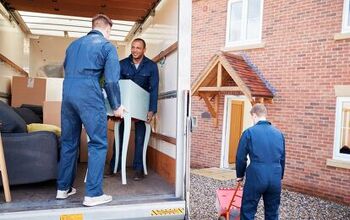


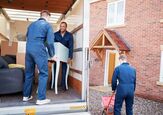


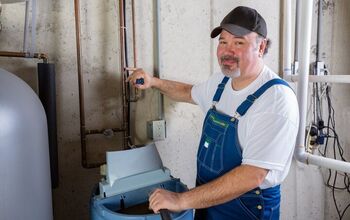

![10 Best Scroll Saws for 2022 [Ultimate Reviews & Buyer's Guide]](https://cdn-fastly.upgradedhome.com/media/2023/07/31/9070684/10-best-scroll-saws-for-2022-ultimate-reviews-buyer-s-guide.jpg?size=350x220)

